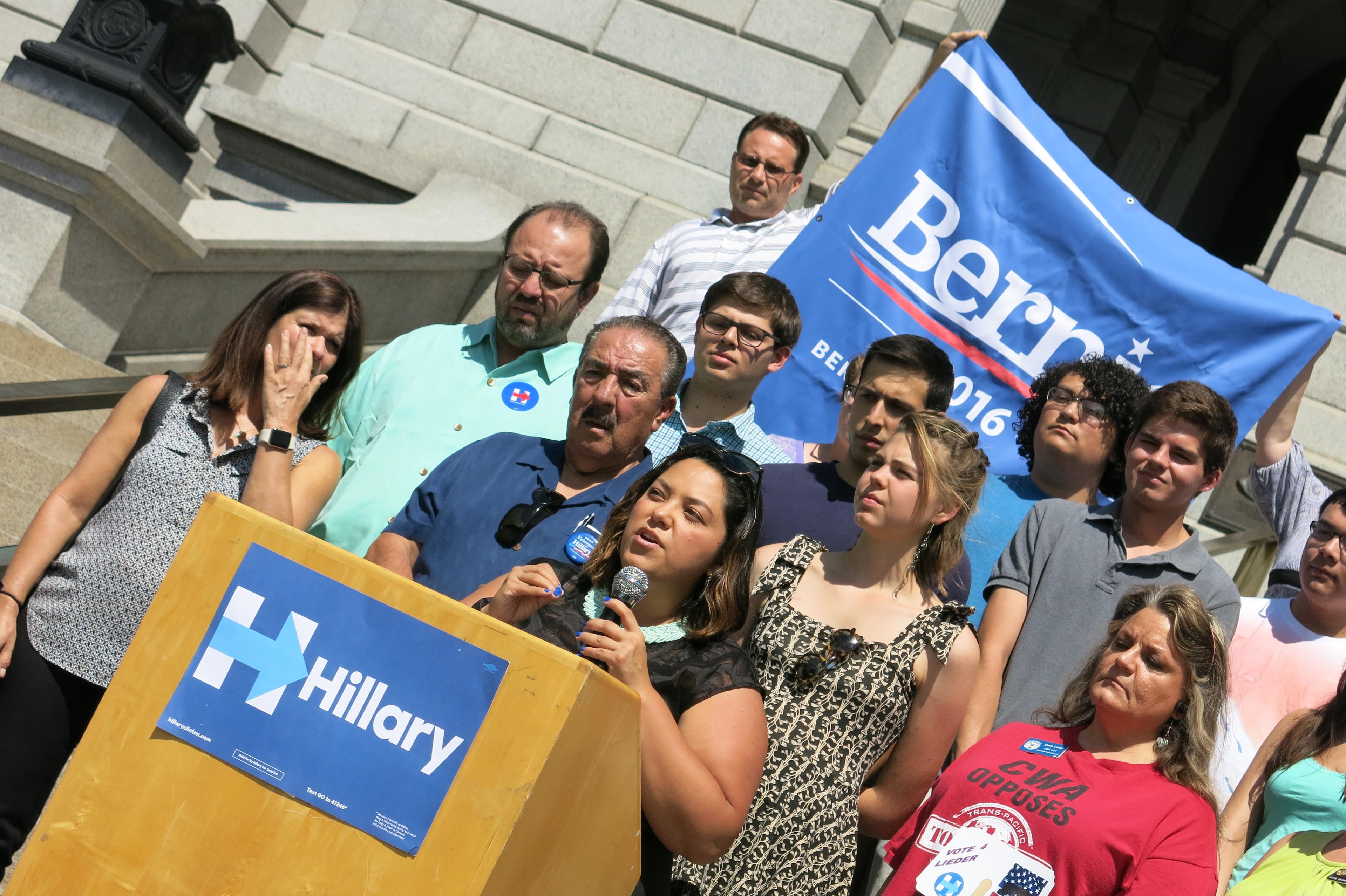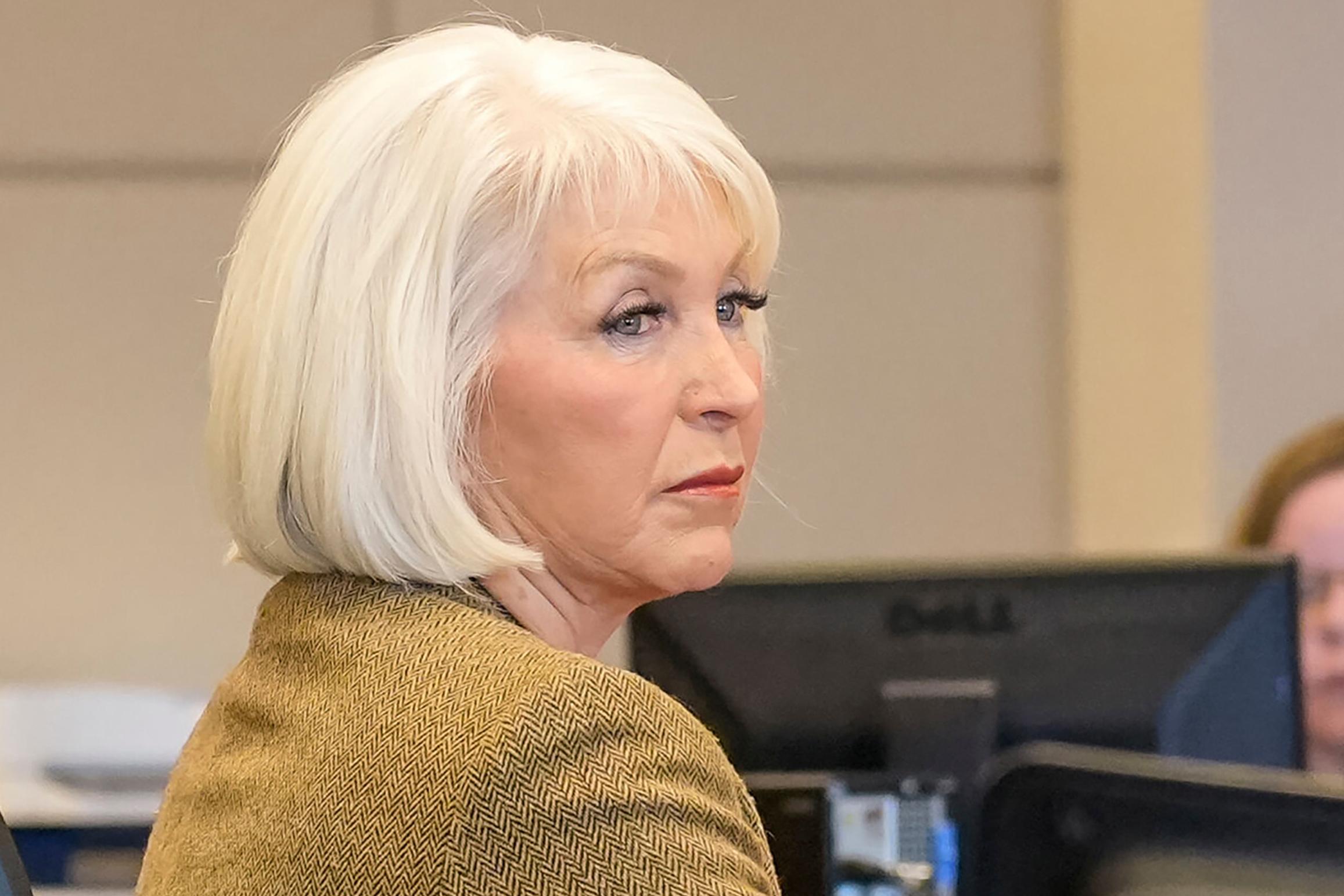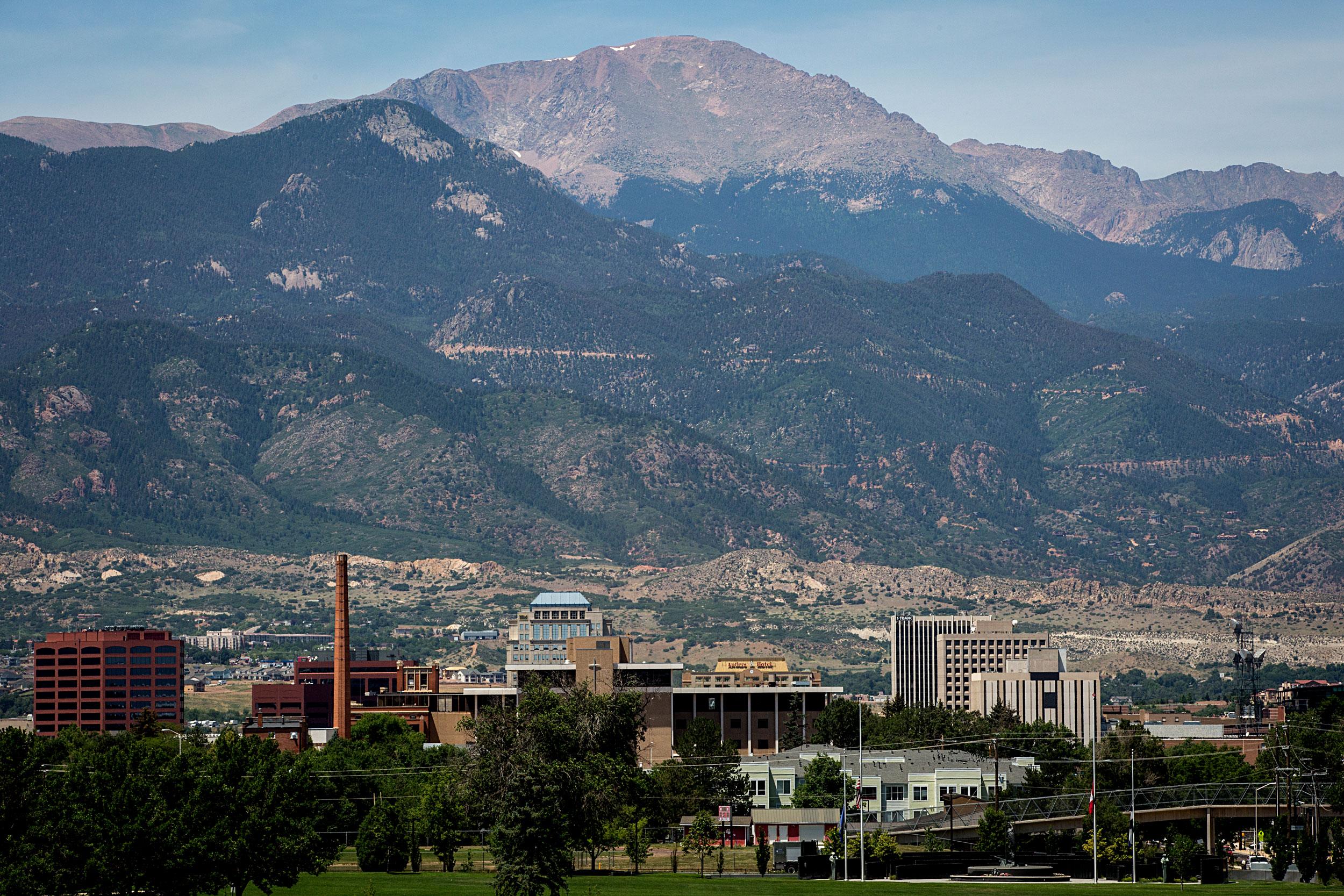
They're some of the smallest players in Colorado's political landscape, but the state's minor parties hope to ride the turmoil of this year's unprecedented presidential election to new prominence.
Four years ago, former New Mexico Gov. Gary Johnson got almost 1.5 percent of Colorado’s vote in his first run for president on the Libertarian ticket. Johnson is running again this year, and with polls showing that much of the public dislikes both Republican Donald Trump and Democrat Hilary Clinton, Colorado Libertarians see an opportunity for him to do a lot better this time. 
"We still get the argument, ‘the lesser of two evils,’ but there’s really no lesser for a lot of people,” Marie Cochron, an outreach director for the Colorado Libertarian Party. “They have a lot of trouble picking between Trump or Hillary, who would be the lesser. So, yeah, we’re getting a lot more traction.”
Libertarian party officials say their web traffic, social media engagement and donations have all increased this year. That’s being fueled by people like Paul Baron. The Loveland small business owner is a a lifelong Republican who's never voted as a Libertarian in a major election. But that will change this year, when he fills out his ballot for Gary Johnson.
"I feel like the biggest problem in American politics today is that people just don't know how to talk to people they disagree with," says Baron. "And I think Trump is a terrible, terrible, terrible choice for that."
Baron is staying registered as a Republican for now. He hopes his vote for Johnson will send a message about where he wants to see the party go.
“That’s the best way to protest,” Baron said. “It may be throwing your vote away, but at least you’re not joining the masses of... Trumpites."
Baron may see a Johnson loss as a throwing his vote away, but for the minor parties winning elections isn’t the only measure of success. If their presidential candidate reaches 15 percent in the polls, they have a shot at participating in the debates. If they can win 5 percent of the popular vote, it could unlock millions in public campaign funds. Just this small shift in voters would have a major impact for them.
The Libertarian Party sees opportunities on both sides of the aisle this year, from the Never Trump movement, to the millions of people who gave life to the Bernie Sanders campaign. But they'll have strong competition in wooing that latter group; many of whom seem to be gravitating toward a different minor party.
"My decision to go to the Green Party was very easy," says Sanders supporter Alexander Garland. "They have a progressive policy base of healthcare for all, of a $15-an-hour minimum wage indexed to inflation, banning on fracking. Just basically Bernie Sanders' platform. So it's a very easy transition for us."
Disappointed Sanders supporters like Garland are trying to organize mass resignations from the Democratic Party, a protest they're calling 'Demexit.'

Garland took that message to the steps of Colorado's state Capitol recently, where he crashed a small Clinton unity rally. He and a fellow Berner raised a defiant Sanders banner as a group of their former compatriots took turns explaining why they're now happy to back the presumptive Democratic nominee.
"I'm trying to save the Democratic party," Garland said afterward, about both his protest and his move to the Green Party. "It's nothing personal, it's not about candidates, it not even necessarily about progressive issues, it's about the systemic change that all of the American people need."
Colorado Green Party co-chair Andrea Merida says she’s fielding around 100 messages a day from newly interested voters.
“In a way we’ve kind of been, maybe the... I hate to say it, but maybe the ‘mushroom political party,’ in that we’ve been in the dark, we’ve been small, we’ve been kind of quiet,” Merida said. “But now we’ve got all this exposure and we’re the logical home for a lot of folks who did support Sen. Sanders.”
Merida says so far the party isn’t doing anything extra to try to woo disillusioned Democrats, in part because they’re already getting so much attention that it’s straining party resources.
Colorado’s third parties are really small: there are only around 7,000 active Green Party voters in the state. Libertarians have 27,000 active voters. 
David Flaherty with the Broomfield-based polling firm Magellan believes small parties have their best opportunity in a decade to pick up new members, but so far he hasn’t seen much evidence that they are.
“There’s a massive group of people that neither party is really acceptable to them right now,” Flaherty said. “But also the third parties haven’t been able to speak to them either, or capitalize on them on what should be an opportunity.”
However, in a year when unprecedented things seem to happen daily in the campaigns, Flaherty says he’s wouldn’t make any predictions about how well the third parties might end up doing.









